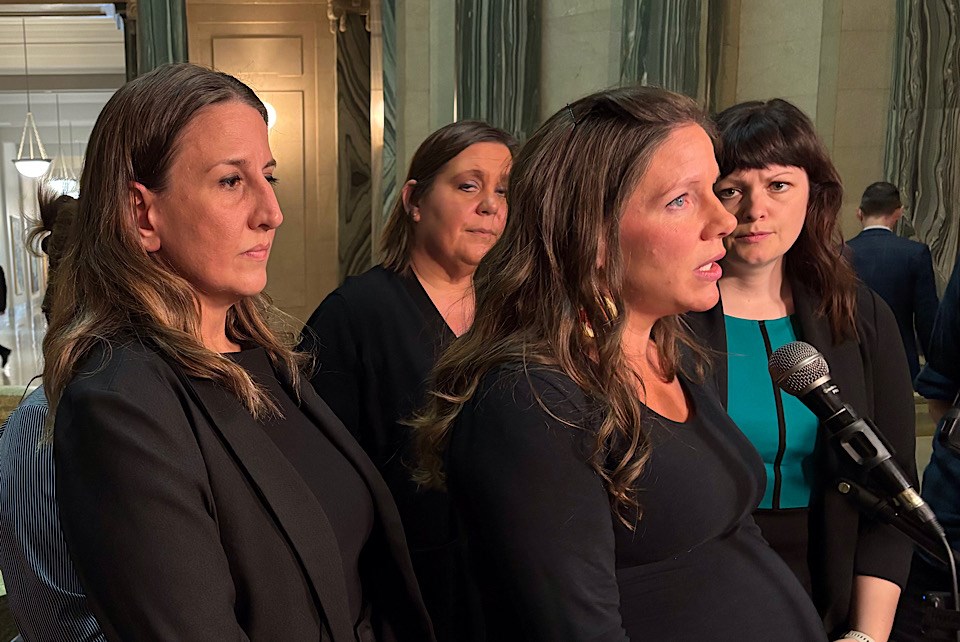REGINA - Opposition New Democrats were raising alarm bells again over staffing shortages in the radiology unit of Regina General Hospital.
A leaked letter, signed by 15 radiology technologists and nurses and circulated by the NDP to reporters, stated that “lack of physician coverage has already resulted in cases where patients did not receive life-saving interventions in time.”
Among the issues raised was severe staffing shortages and retention issues, with only four IR technologist positions filled out of a possible ten, and only four nursing positions filled out of a possible nine.
They also pointed to an “unsustainable workload” with patient procedures related due to physician shortages, burnout, declining mental health and staff resignations. They also point to new hires not having adequate training.
Health Minister Jeremy Cockrill indicated during Question Period that he had not seen the letter, but said “we take these issues seriously, and we’ll be reviewing the letter and understanding what’s happening at Regina General Hospital in the interventional radiology unit, Mr. Speaker.”
But speaking to reporters at the legislature, Opposition Critic for Rural and Remote Health Meara Conway did not buy that explanation. She said Cockrill had been well aware of these issues for months.
“The Saskatchewan NDP, we actually had a press conference on this back in October due to the short staffing that was happening in that unit. We raised the alarms due to the closures that were happening in interventionist radiology. So for the Health Minister to somehow suggest he’s not aware of these issues is not believable in my view.”
Gerri Grant, who was an interventional radiology technologist for 17 years in the department, said the letter had been written about two or three weeks ago and sent to their union first.
Grant said she “gave up a really fabulous engaging career”, and cited the problems seen in the department as the reason.
“Just watching my co- workers struggle, myself struggle with that work-life balance. We were taking on-call hours at an excessive rate. You would be working your regular shifts as well as on-call. Watching patients suffer. I couldn't see that anymore. We watched the delays in their care harm them, and that's not something I could handle anymore.”
Grant said this has “been a problem for many years now. It's just getting worse now.” As for deaths, Grant said she could not speak to specifics on that due to confidentiality, but added “I think that we all know that anytime there's a delay in care that you're going to have negative consequences.”
In speaking to reporters about the issues outlined in the letter, Cockrill acknowledged certainly there’s challenges…. my focus is, I understand there's challenges, and people who feel those challenges are people who work on the floor every day and also the patients, so we take that very seriously.
Cockrill said his focus is not just dwelling on challenges, but then figuring out how to address it.
“These are concerns that we take seriously, and again, I've seen the letter about half an hour ago, so it's, you know, we'll work to understand the concerns and address them.”




